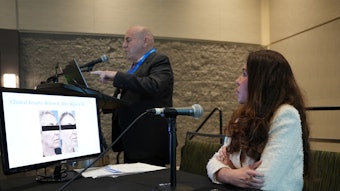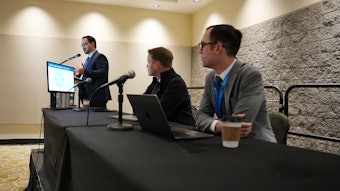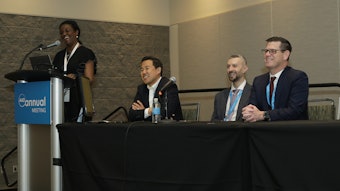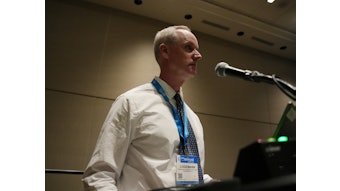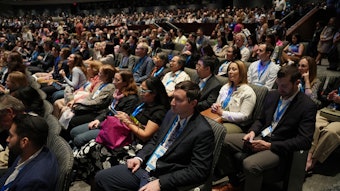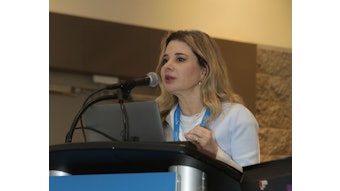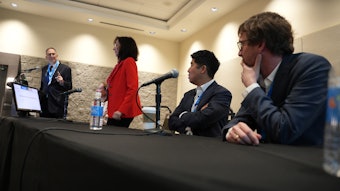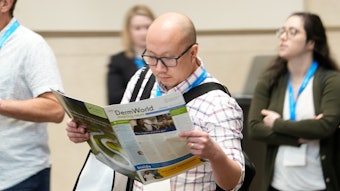Patients are our most effective teachers
The 2025 Sulzberger Memorial Lecture highlighted insights from patient-driven research to unravel the mysteries of skin diseases and immunology.

At the Annual Meeting’s Plenary session on Sunday, Rachael Clark, MD, PhD, FAAD, gave the Marion B. Sulzberger, MD, Memorial Award and Lectureship, “Patients Don’t Read the Textbooks, They Write Them: Insights from Patient-driven Investigation.” A physician-scientist who also sees patients in clinic, Dr. Clark discussed lessons she has learned from patients about the role of resident memory T cells in skin disease.
“Patients bring us questions and can show us what you thought was true isn’t, such as when what you read in the textbooks doesn’t agree with patient behavior. That’s exciting because it gives you an opportunity to find out what’s really going on.”
Dr. Clark is the Martin C. Milm Jr., MD, and Shing-Yiu Yip professor of dermatology at Harvard Medical School, and vice chair for research in the department of dermatology at Brigham and Women’s Hospital in Boston.
“Our laboratory discovered that the skin of an adult individual contains approximately 20 billion memory T cells under normal, noninflamed conditions, nearly twice the number present in the entire circulation,” Dr. Clark said. “These skin resident T cells are polarized effector memory T cells that provide potent and rapid local immune responses within the skin. It has also been found that these types of cells contribute to many of the inflammatory skin diseases we see on our patients.”
During her presentation, Dr. Clark shared lessons about resident memory T cells that she and her research team have learned in the lab from patients, starting with those who are immunocompromised.
“Transplant recipients have a 65-fold increased risk of squamous cell carcinoma and nearly 7% of these tumors are aggressive and metastasize,” she said. “The development of squamous cell carcinoma in transplant recipients is linked to the use of medications that suppress T cell activity.”
She discussed how squamous cell carcinoma cells from immunocompromised individuals evade the immune response by down-regulating vascular E-selectin, with the exclusion of skin-homing memory T cells and recruit regulatory T cells. The function of resident memory T cells in psoriasis, vitiligo, contact dermatitis, and mycosis fungoides has helped Dr. Clark and her team address patient-inspired questions that commonly plague dermatologists, including: Why are some skin lesions discrete and others diffuse? The lesson: “Resident memory T cell skin diseases are characterized by sharply demarcated inflammatory lesions,” she said.
Dr. Clark also addressed the role of resident memory T cell pathogenesis to answer patient-inspired questions, such as why skin lesions recur in the same anatomic locations and why psoriasis is resistant to therapy that only affects circulating cells. She and her team’s resident memory T cell research, driven by observations in patients and carried out on human tissues, has the goal of developing novel therapies for skin disease and advancing our understanding of human immunology.
“Our patients have shown us characteristics of resident memory T-cell mediated diseases and how they cause the disease. Thank you to our patients for teaching us so much,” she concluded.
